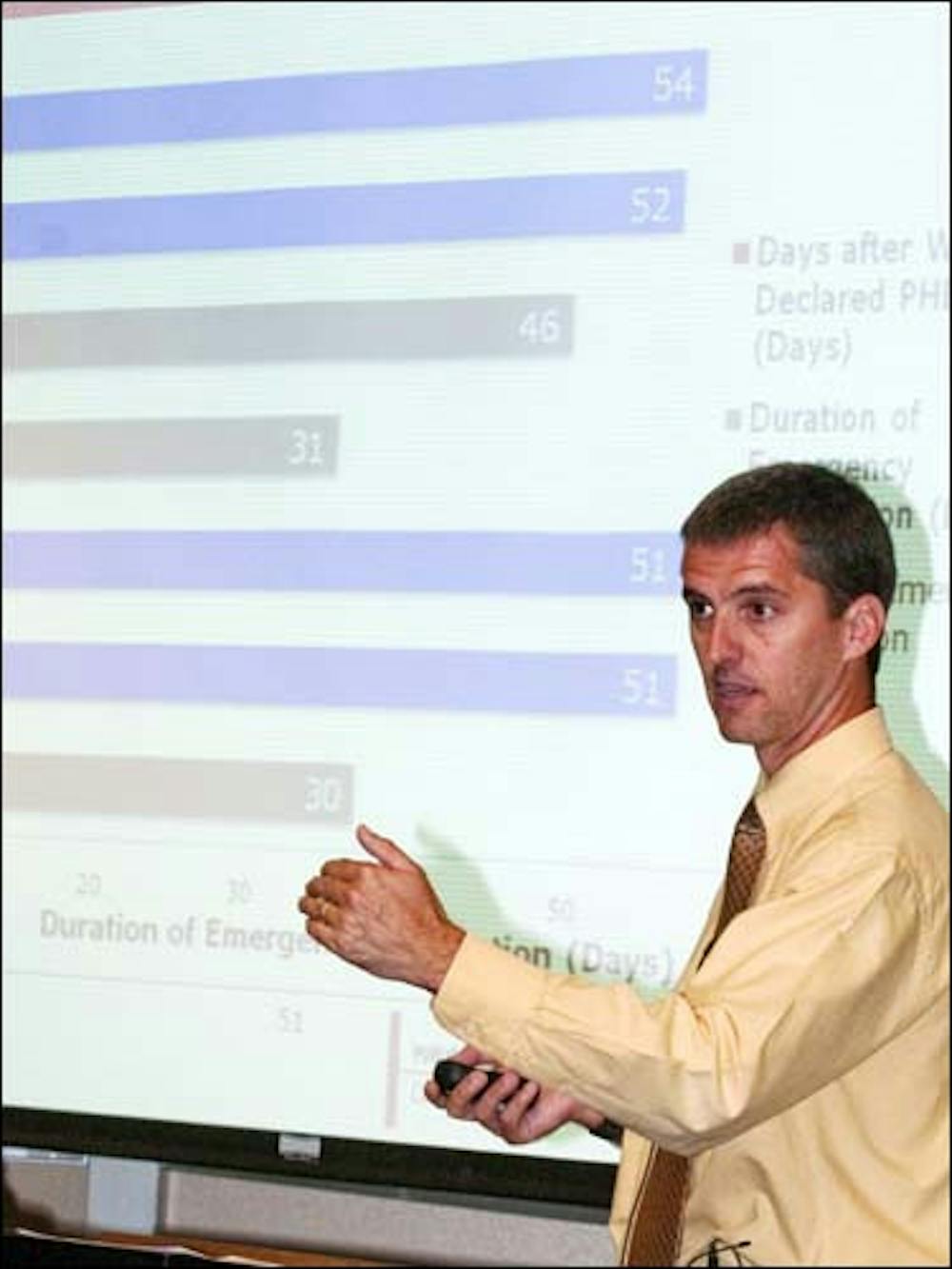When public-health emergencies like the swine flu are declared, drastic changes in the legal environment must be made, an ASU law professor said Tuesday.
The Sandra Day O’Connor College of Law hosted a lecture on the global legal response to the H1N1 flu with James Hodge Jr., a public-health law and policy scholar who is a faculty fellow at the Center for the Study of Law, Science and Technology.
“Once that emergency is declared, it is not business as usual,” he said.
The presentation covered updates on the swine flu, the international and national response to the virus, how the legal environment changes during a pandemic and the principles of legal triage on a global standard.
Within four to six weeks after the public appearance of swine flu, the World Health Organization declared that H1N1 progressed from a category two to three influenza pandemic to and from a five to six category, which was the first time WHO used a level that high, Hodge said.
H1N1 is not more dangerous than the common flu, but it is more easily transmitted, he said, later adding that numbers are rising from the nearly 44,000 confirmed laboratory human cases and 600 deaths in the U.S. alone.
The second wave of the condition has started and the situation will require attention for several more years, he said.
“It’s quick,” he said. “This thing is happening in real time and it’s requiring real-time responses.”
The goal of legal triage, which is the process of different levels of government responding to health issues, is to support public health in real time through international, national, state, tribal, county, city and community laws.
“Legal triage refers to those efforts of legal actors and others to construct a favorable legal environment during emergencies … to facilitate a legitimate public health response,” Hodge said.
Throughout the presentation, he said the confirmation of a health emergency or pandemic causes various legal parameters to be re-evaluated by individuals with certain protections and entitlements, like free access to vaccines.
Some of the challenges of legal triage deal with international quarantine laws, international travel restrictions, allocation of antivirals and international trade restrictions, all of which have been prominent in spreading H1N1, Hodge said.
“Antivirals are in short supply in many parts of the world,” Hodge said.
Determining a fair method for allocating antivirals is a major issue for legal triage because it requires an evaluation of ethical and legal ramifications, he said, adding that the U.S. plans to share 10 percent of its supply with the United Nations for global distribution.
The presentation was a good introduction to public-health issues, said Andrew Askland, who is the director for the Center for the Study of Law, Science and Technology.
“We need more coordinated responses and responses that are consistent,” said Askland, who coordinated the lecture.
The lecture helped people realize it is important for everyone to get a flu shot, since many believe one person can’t make a difference, he said.
“It’s not just the impact on us, but we’re representing the issue,” he said.
Third-year law student Michael Donovan said the presentation took into account scientific and legal aspects to improve human well-being.
“It’s something that touches everyone’s life,” Donovan said. “I think anyone could benefit from this basic background that Professor Hodge just taught us.”
There is no reason why future cases and deaths related to the H1N1 shouldn’t be able to be prevented, it just requires the right attitude, Hodge said.
“The mission should be to protect the public’s heath,” he said. “This is so critical.”
Reach the reporter at slsnyder@asu.edu.




